Want to hear more from the actors and creators of your favorite shows and films? Subscribe to The Cinema Spot on YouTube for all of our upcoming interviews!
Managing editor & film and television critic with a Bachelor's of Arts in English Literature with a Writing Minor from the University of Guam. Currently in graduate school completing a Master's in English Literature.
Are you ready for a real fever dream with Donald Glover’s Atlanta? Season 3 of FX’s hit surreal comedy-drama series contains some hard-hitting trips. I got to see this week’s story over a few times to get a grasp on what is going on. The eighth episode of the season is titled, “New Jazz”. It is written by Glover and directed by Hiro Murai.
In this review, I will be discussing Atlanta Season 3 Episode 8. There will be no spoilers here, as the title of this article suggests. Nonetheless, please read ahead at your own discretion to avoid any possible revelations.
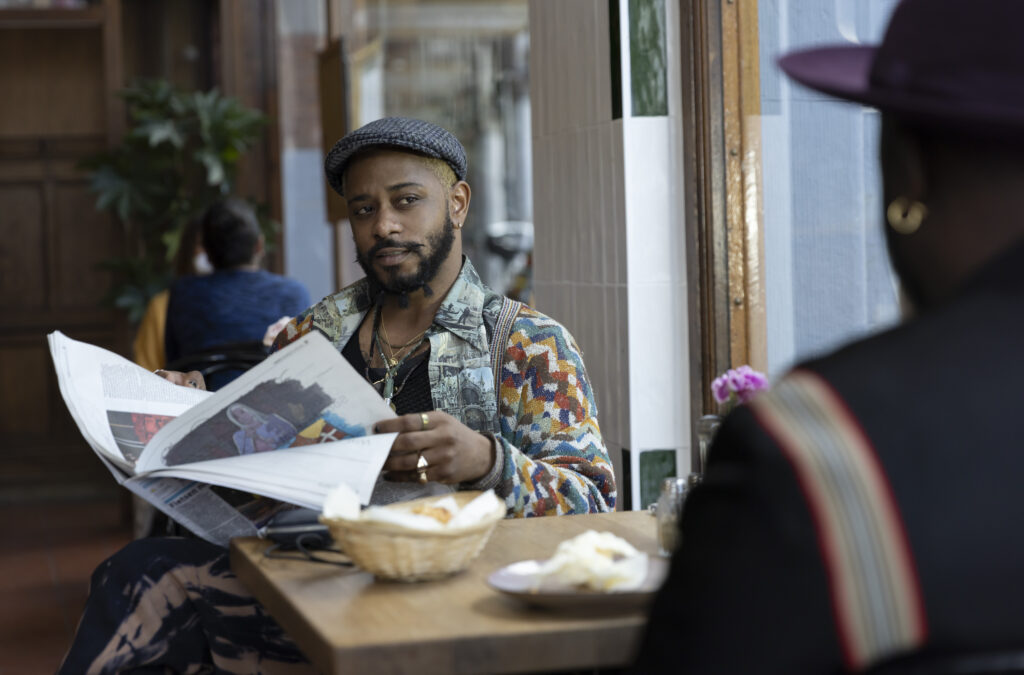
Plot Synopsis
According to FX Networks, here is the logline for Atlanta Season 3 Episode 8.
Al and Darius walk around Amsterdam. Psssh, I could make a way better tv show than this.
FX Networks Press Room
Discussion
Prepare yourselves. This week’s episode of Atlanta Season 3 is a trip. Its narrative parallels uncannily similar to that of last season’s “Woods” episode in more ways than one. Here, we see our beloved characters traversing throughout Amsterdam, and I am still astonished at how well the entirety of it was crafted. Murphy’s cinematography drops us into the point of view of Alfred “Al/ Paper Boi” Miles (Brian Tyree Henry) as well as people within close proximity of him. The way he frames the scenes is terrific, providing us with empty spaces or spaces that are to be filled; at the same time, he frames them in such a way that does not reveal the larger purpose of the episode. (I’ll get to that in a bit.)
The music team gives us two or three psychedelic songs to get us into the mood of what is going on, and even by my most recent third watch, I am still stuck spiraling down that rabbit hole and trapped in the fever dream. “New Jazz” is an interesting title for this specific episode. If we are speaking of the music aspect in particular, then perhaps the writers, along with Malone, Udeorji, and Pilzer are referring to the genres that succeed it, including funk, pop, and hip-hop. Pay close attention to one song that Al listens to he and Darius begin their trip down the streets. Its lyrics serve a larger purpose that goes beyond the gaze of others.
Green’s production design makes the episode even more batshit hallucinogenic. While “Woods” had the atmosphere of Atlanta, Georgia, “New Jazz” is filled with so many different colors, angles, lighting, and set pieces than we have seen with “Cancer Attack”. Overall, the crew’s handle of the episode has me loving it more with each watch. With that said, let’s dive into the themes of the episode!
The Cycle
I have to warn you that the newspaper which Darius Epps (LaKeith Stanfield) reads — and his interaction with Alfred — at the beginning of the episode might be key factors in how the rest of it plays out. Casual viewers may not pay too much attention to it too much, but eagle-eyed fans may take it into consideration. The newspaper’s Dutch headline “Fiesten niet zo goed als auto’s volgens toeristen” roughly translates to “Bicycles not as good as cars according to tourists” in English. Amsterdam is a widely known location known for people who come by to get high from marijuana, so of course, the episode’s got to include tourists, or so we would believe.
Darius and Alfred’s interaction in the first one or two scenes could prove important. While initially, this threw me off, I do think that it gives more relevance to the little twist at the end. We could perceive it as banter and witticism, but it adds to the idea of the cycle.

Placelessness
Back to the headline, I do want to talk about bicycles and cars. These technologies of transportation seldom have an appearance in the episode — although, some bikes show up once and that’s pretty much it — but I do think there is meaning to it. German scholar Roberto Simanowski’s critical text, The Death Algorithm and Other Digital Dilemmas, describes human beings’ attachment to cellphones as something with a sense of placelessness. He states:
Every form of technology is an inhabitable place with its own special culture … That also goes for pieces of technology we can hold in our hands. … The smartphone transforms surrounding space into a place that doesn’t really exist for people who, engrossed by cyberspace, don’t register the cultural specifics of their environment…
Roberto Simanowki, ‘The Death Algorithm and Other Digital Dilemmas’ (pp. 24-25)
From what we know of Alfred at this point of Atlanta Season 3, he is currently without his cellphone. Simanowski suggests that music and cars serve the same purpose. We can place ourselves in our own personal space of melodies and machinic vehicles, both acting as vessels; realistically speaking, however, our bodies themselves are more or less stagnant.
Interestingly enough, Alfred loses himself in the music, gazing out at people that he passes by on the Vier Heemskinderensluis bridge. It is not until he snaps out of his little “trance” that he realizes what is right in front of him…
Sameness
Akin to the Season 1 finale, “The Jacket”, we have groups of passersby wearing animal-inspired clothing. While in “The Jacket”, people in Atlanta were wearing cow costumes, “New Jazz” has people in the vicinity putting on the appearance of dogs. (I’m sorry, but I cannot go far as to call them furries.) Yes… Hear me out, this is an idea about the show I have been marinating on since the pilot but I want to save a whole explanation on that for my master’s thesis project.
To make a long story short (with as minimal spoilers as possible), Alfred is urged into wearing a certain article of clothing to make him stand out less. Rather than making him appear prominent — after all, he is a famous rapper at this point — a character wants him to fit in with the crowd and become one of the Same. There is a noteworthy dialogue exchange that I want to point out here; Alfred declares, “I’m nobody”, to which someone responds, “Everyone is nobody, but are you nobody to everyone?” By putting on the suggested article of clothing, Alfred enters a metaphorical space where he spirals down into a state of Otherness rather than Sameness.
In calling himself a “nobody”, he thinks of himself as an Other from society; but society has too many people who want to be different and unique, and that itself renders people the Same. Moreover, Alfred is actually a Same who becomes an Other, and this process of becoming an Other is a self-destructive one. Additionally, a character tells Alfred to “[b]ecome what you fear”; there is a whole explanation about the concept of “becoming” in Gilles Deleuze and Félix Guattari’s A Thousand Pleateaus that I could bring up, but that could be complex for the casual reader…
A Brief Becoming Brought Up at the Beginning
Towards the end of the episode, another character speaks to Alfred about whiteness. In “Cancer Attack”, we got to see the “white Liam Neeson”; and in “New Jazz”, we get mentions about a “white Lizzo” and something about Chris Evans. With this week’s special guest appearances, Alfred is once again told about whiteness. One line I find remarkable is this: “If you don’t have [the truth], guess what? You’re fucking white!”
Whiteness is frequently a theme in Atlanta Season 3, introduced in the premiere episode, “Three Slaps” as a condition of Sameness. While I have already cited Tobias Segal’s character, “E”, let me bring up his quote once more:
White’s not a real thing. There’s no scientific basis for [whiteness]. People just become white. It’s social. White is where you are, is when you are… [With] enough blood and money, anyone can be white. It’s always been that way. The thing about being white is it blinds you. It’s easy to see the Black man as cursed because you’ve separated yourself from him, but you don’t know you’re enslaved just like him. Cold whiteness. You’re hypothermic, you lose logic. You see the blood, and you think someone else is bleeding.
“E” (Tobias Segal) in ‘Atlanta’ Season 3, Episode 1 — “Three Slaps”
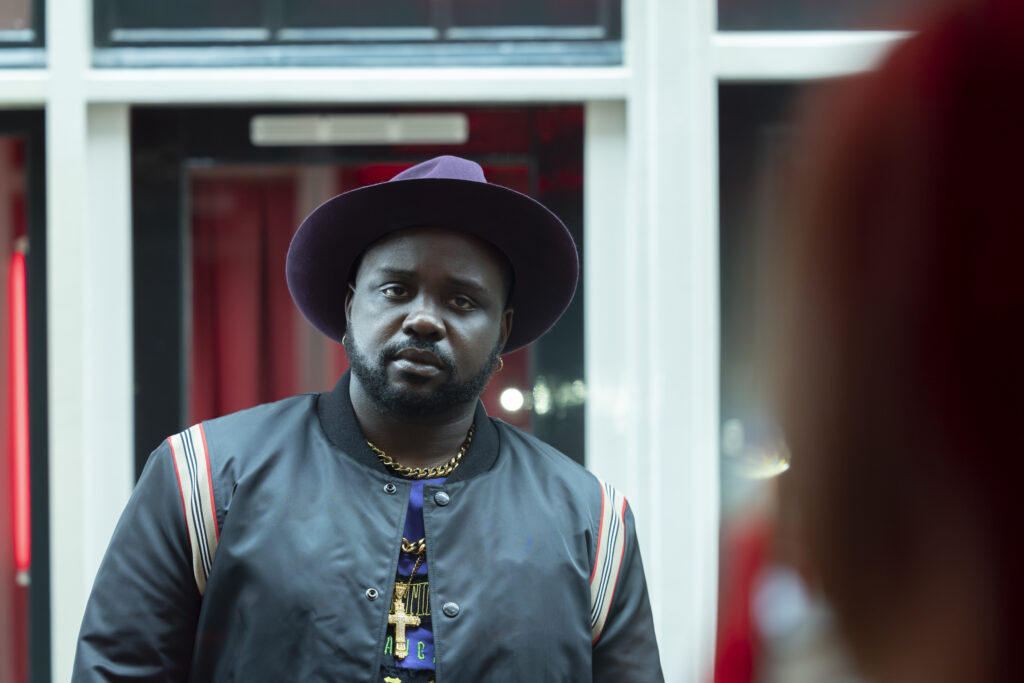
The Gaze
In “New Jazz”, Alfred “window shops” bodies of women, although it could very much be himself that is being window-shopped as well. This sexual transaction is referred to as a “gaze”, as South Korean-born German philosopher and cultural theorist Byung-Chul Han writes about in his critical text, The Expulsion of the Other: Society, Perception and Communication Today. While he does write about the self-destructive nature of the Other, he briefly describes the gaze as the following: “[B]eing gazed upon is the central aspect of Being-in-the-world. World is gaze. … One symptom of paranoia is to suspect gazes everywhere, to feel gazed upon from every corner”.
During this episode, the gazes between Alfred and other Others (or other Sames) are pretty leveled; and it is not until the conclusion of his trip that he starts to feel a sense of numbness. In other words, what he perceives is actually not reality but rather irreality, or surrealism. Such is the case with Alfred and the female models. Han briefly writes about pornography in this manner, stating: “In porn, all bodies are alike … no longer a site, a ‘sumptuous theatre’, the ‘fabulous surface of the inscription of dreams and divinities’. … Play requires an illusion, an untruth. … Sexuality as functional performance likewise drives out all forms of play; it becomes entirely mechanical”.
I do not speak of Alfred’s libido as sexual in the literal pornographic sense. Rather, his libido is a cosmic drive and impulse, an energy that keeps him going in his conscious life. Therefore, due to the inactivity of his libido throughout his trip, Alfred ceases to be mechanical — or machine-like — in reality; and this comes back to his attachment (and detachment) to his cellphone, that this schizoid behavior has become a product of the European trip.
The Crew of Atlanta
Donald Glover, Paul Simms, Dianne McGunigle, Stephen Glover, Hiro Murai, and Stefani Robinson serve as the executive producers of the series. Janine Nabers serves as the co-executive producer, while Alex Orr, Cass Marks, and Kaitlin Waldron serve as the producers. Ibra Ake, Taofik Kolade, Jamal Olori, and Francesca Sloane serve as the supervising producers. Jordan Temple serves as the co-producer.
Alexa L. Fogel serves as the casting director. Kate Rhodes James serves as the casting director for the U.K., France, and Netherlands. Rebecca van Unen also serves as the Netherlands casting director. Francesca Bradley serves as the casting associate, while Kathryn Zamora-Benson is the US casting associate.
Stephen Murphy returns as the director of photography. Kyle Reiter serves as the editor of the episode. Jen Bryson and Cameron Ross return as the assistant editors.
Jen Malone and Fam Udeorji return as the music supervisors, with Whitney A. Pilzer as the associate music supervisor.
Jonathan Paul Green is the production designer. Lynda Armstrong serves as the head of the make-up department. Shunika Terry serves as the head of the hair department. Celia Yau serves as the costume designer.
In the Amsterdam unit, Sander Verdonk and Jelani Isaacs serve as the producers. Faisa Sontodimedjo is on make-up and hair. Amy Miller is the Netherlands casting associate.
The Cast of Atlanta
Donald Glover, Brian Tyree Henry, and LaKeith Stanfield return as their respective characters, Earnest “Earn” Marks, Alfred “Paper Boi” Miles, and Darius Epps. Zazie Beetz is credited as Vanessa “Van” Keefer.
Liam Neeson guest stars as himself. Ava Grey portrays a woman named Lorraine.
Dries Alkemade plays a cashier at Hazy Dayz.
Bram Klappe, Ziggy Durieux, and Ronald Kalter play three teens, while Hanne Arendzen appears as a woman in the street. Chaneil Kular plays Cammy, while Aude des Pallieres plays Flo; both are friends of Lorraine.
Momar Diagne plays a man, while Mathijs Swarte plays a waiter.
Henry in Horror
“New Jazz” focuses primarily on Alfred’s stay in Amsterdam and the consequences of losing his phone because of Socks. Henry continues to shock me in this episode, being a victim of his career, the fame that comes along with it, as well as his milieu. His story arc in this episode is strikingly familiar to that of “Woods” where he continues venturing into the same scenario. The fear that he felt before returns and this time it leaves him in the heat of the moment. The actions and words that he exhibits are all the more potent now that he is out of place (in another country) and in a slightly different state of mind (not in Atlanta but in a position with a sense of Atlanta-ness to it).
I enjoyed Alfred’s interactions with the episode’s two guest characters. Although, I do not want to speak too much about them without spoiling major plot details of the episode. All I will say is that you will be left speechless when you see one or both of them!
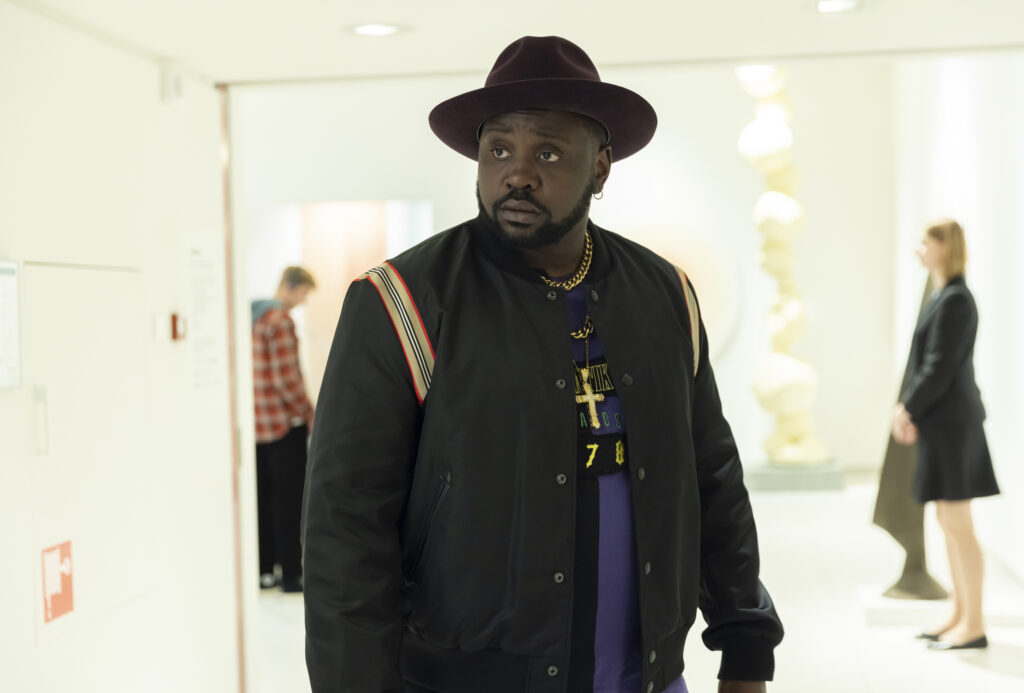
Final Thoughts on This Week’s Atlanta
“New Jazz” is about a character’s journey through the uncanny spiral, and while I have cited Dufourmantelle many times in other reviews, I did want to return to Simanowski’s concept of the death algorithm and placelessness. Moreover, something about “rat society” had me intrigued, as there is something mentioned in the Atlanta pilot that I thought could establish a strong connection. Overall, this is totally not something you would want to miss out on. I found it to be a radical narrative about the shifting of perspectives and the complexities thereof that make living all the more difficult to comprehend.
Tell me about it.
Donald Glover’s Atlanta Season 3 is now on FX and streaming via Hulu!
Have you seen Glover’s series? If so, then what are your thoughts on it so far? Let us know! For more comedy and drama-related news and reviews visit and follow The Cinema Spot on Facebook, Twitter, and Instagram!
Managing editor & film and television critic with a Bachelor's of Arts in English Literature with a Writing Minor from the University of Guam. Currently in graduate school completing a Master's in English Literature.


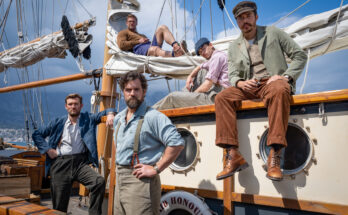
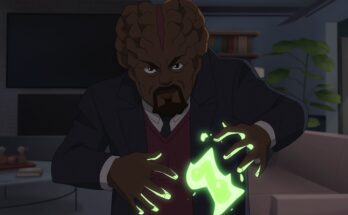
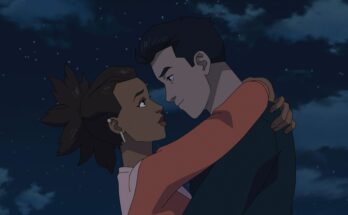
7 Comments on “‘Atlanta’ Season 3 Episode 8 Non-Spoiler Review – “New Jazz””